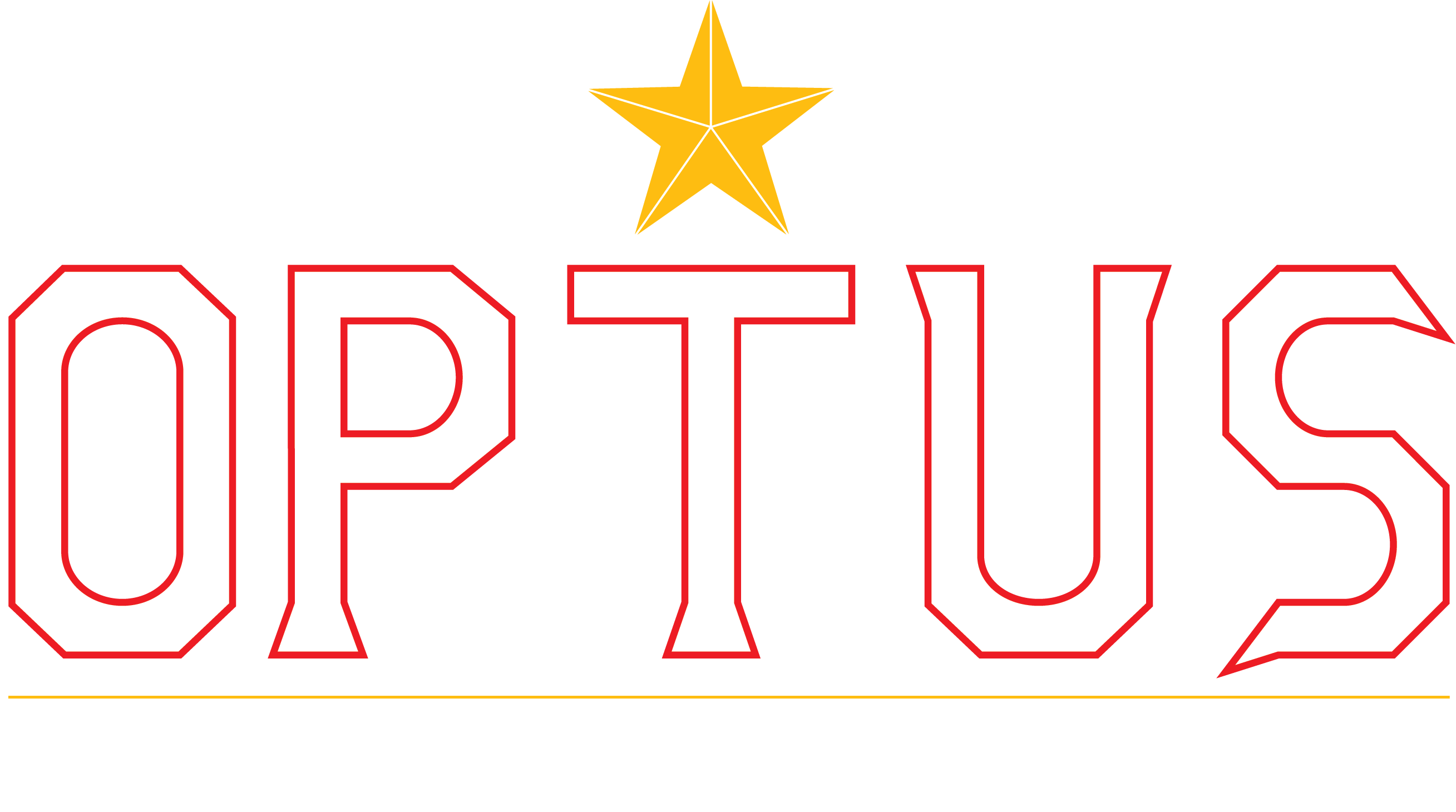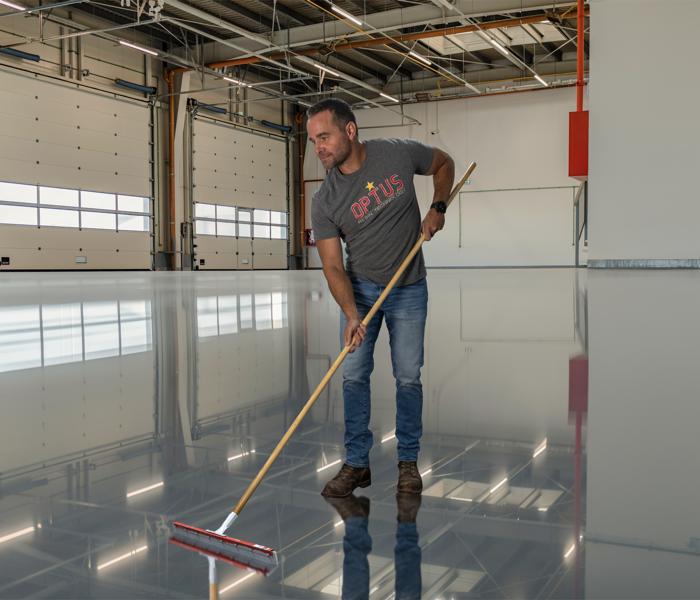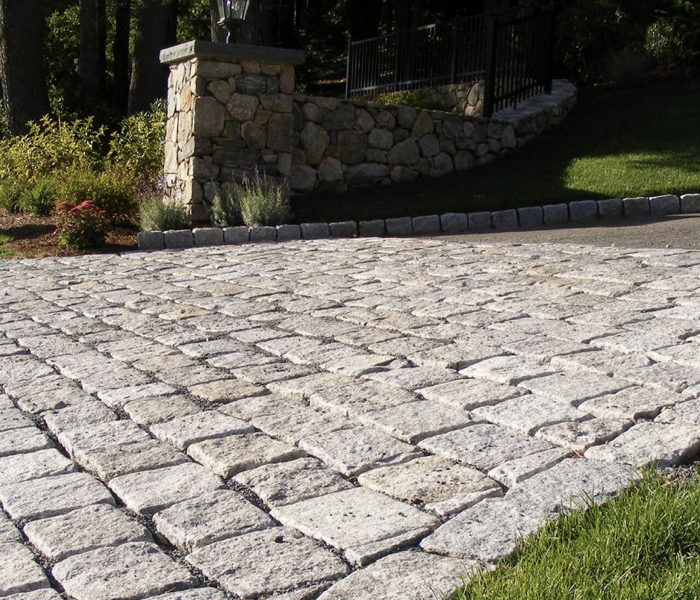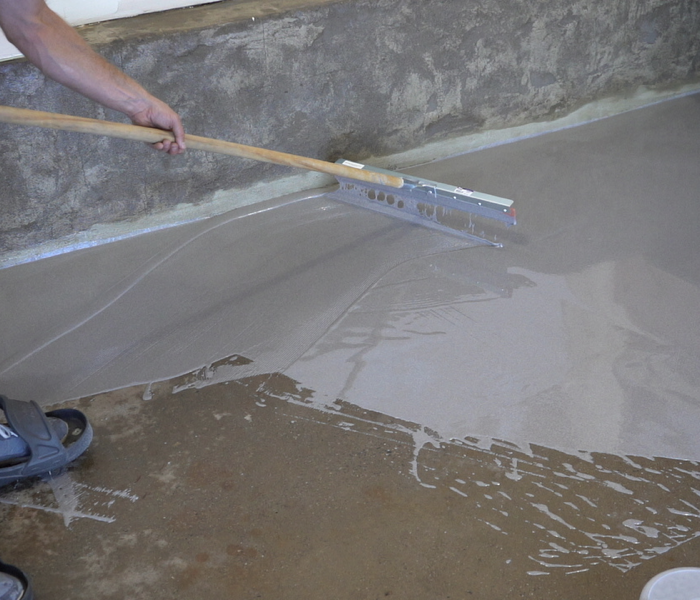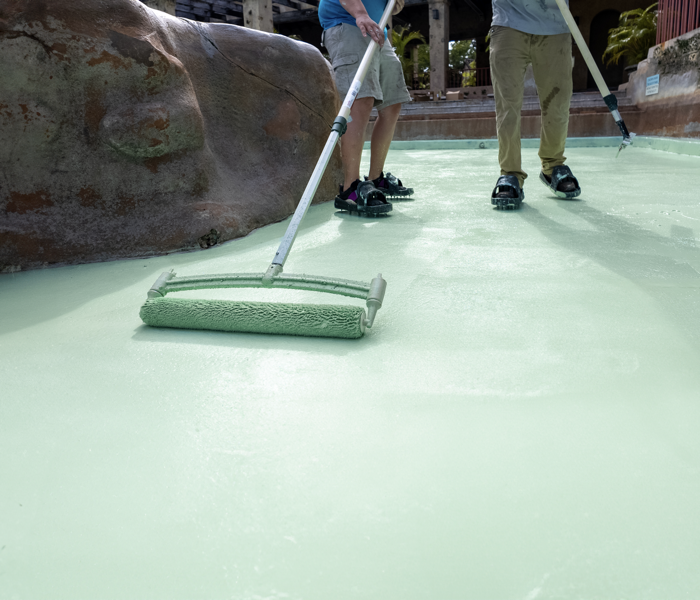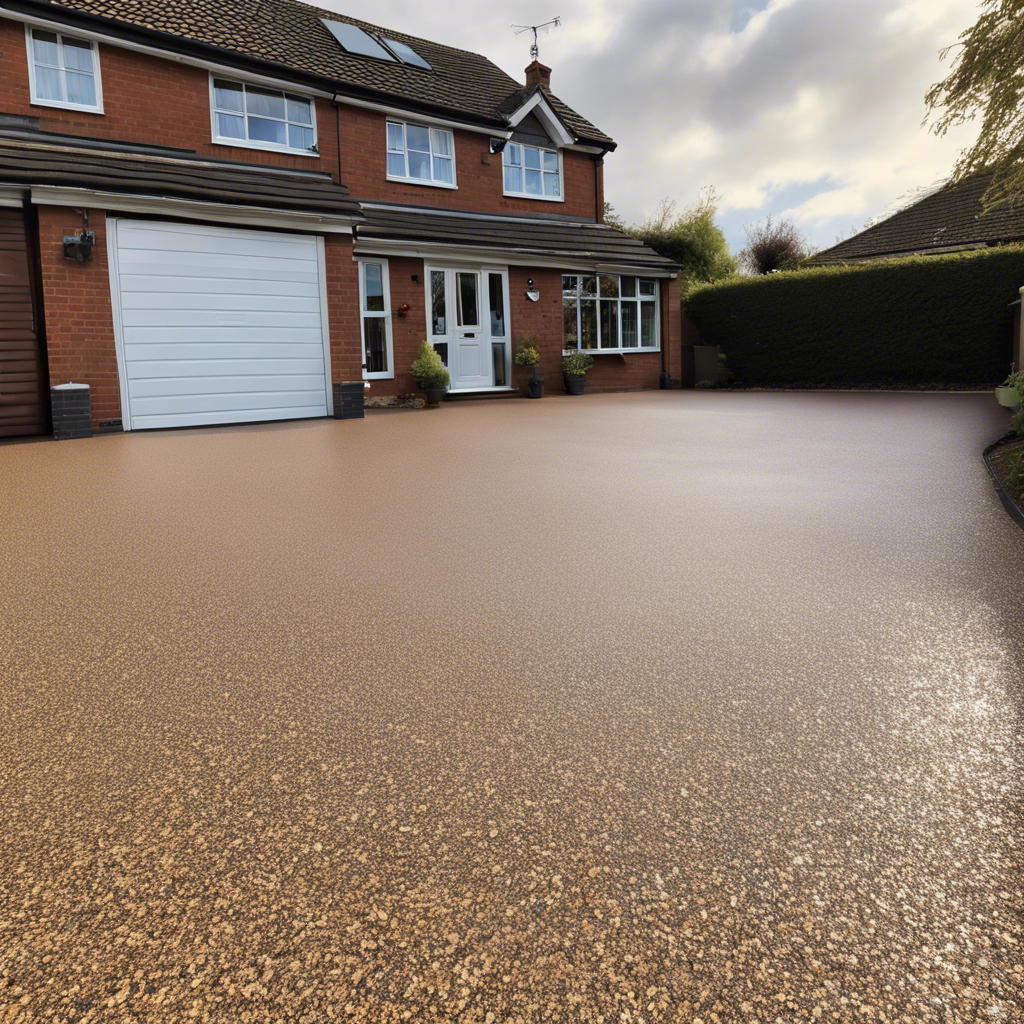
Thinking about upgrading your driveway or pathways can bring up a lot of questions, especially about costs. Resin pathways cost approximately $115/m² when considering all factors involved.
This blog will cover everything from the initial resin driveway cost to long-term advantages, helping you make an informed decision. Keep reading to uncover if resin is the right choice for you.
Cost of Resin Pathways
Resin pathways involve a higher upfront investment compared to traditional materials, influenced by factors such as the area size and type of aggregate used. The cost can vary depending on the specific project requirements and material choices.
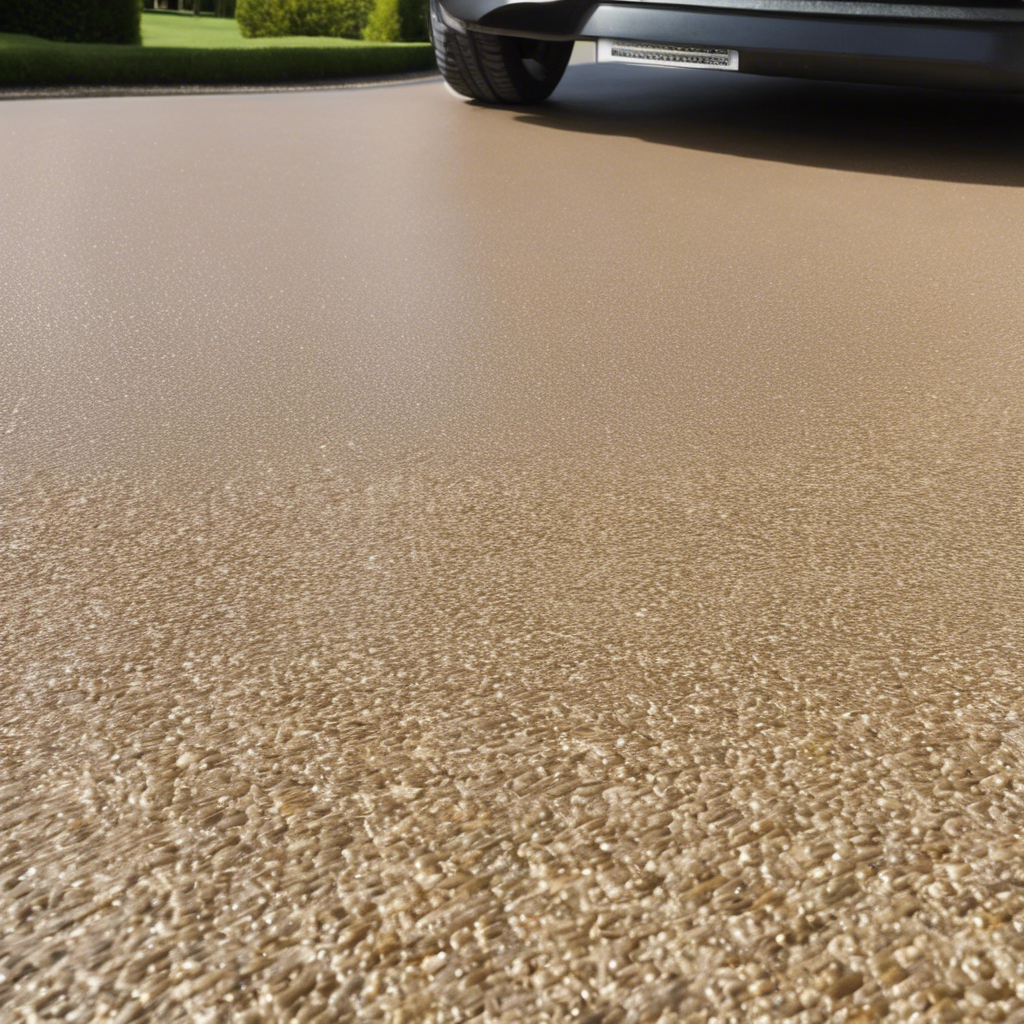
Higher Upfront Cost, But Worth It in the Long Run
Choosing a resin-bound driveway requires a bigger initial payment than traditional materials. Resin materials alone cost around $23-$35 per square meter ($2.10-$3.20/ft²), and the entire installation can reach approximately $92 per square meter ($8.40/ft²) if you factor in necessities like edging or a base layer.
This upfront cost is definitely steeper compared to options like gravel or asphalt driveways. However, it’s important to consider the longevity and durability of resin surfacing. With a lifespan of up to 25 years, resin pathways offer a remarkable return on investment over time.
Unlike other pavements that may need frequent repairs or replacements, the durability and low maintenance nature of resin driveways make them an economically sound choice in the long run.
Factors Affecting the Cost
The cost of resin pathways can vary significantly based on several factors. The materials used in the pathway construction, such as the type and quality of resin, aggregate, and edging, are crucial determinants impacting the overall cost.
Furthermore, specific installation requirements like site preparation and surface leveling also play a significant role in determining the total expense. Additionally, special features such as embedded designs or decorative elements could amplify the cost.
Importantly, the scale of the project including size and complexity will have a direct impact on pricing. It is essential to consider these various elements when planning for a resin pathway installation to ensure an accurate budget projection.
The expenses associated with resin pathways are influenced by multifaceted considerations beyond mere material costs – from specialized installations to distinct design preferences; every aspect contributes towards shaping the ultimate investment required for this durable and long-lasting pavement solution.
Benefits of Resin Pathways
Resin pathways offer long-term cost savings, as they are durable and require low maintenance. They also provide an attractive and environmentally friendly paving option.
Long-term cost savings
Resin pathways offer long-term cost savings due to their durability and low maintenance. When considering the lifespan of a properly installed resin pathway, which can be up to 25 years, the initial investment becomes more economical over time.
Proper care and maintenance ensure that these pathways retain their aesthetic appeal and functionality for many years without incurring additional expenses. With resin-bound gravel driveways being considered more affordable than block paving alternatives, the economic benefits become evident through reduced repair and replacement costs.
Durable and low maintenance
Transitioning from long-term cost savings to the topic of durability and low maintenance, resin pathways offer a durable and low-maintenance solution for outdoor surfaces. A properly installed resin pathway can last up to 25 years, providing a long-lasting and reliable surface for both residential and commercial applications.
With minimal maintenance requirements, resin pathways prove to be a cost-effective option over time. Additionally, when compared to traditional paving materials like asphalt or concrete, resin-bound gravel driveways are more affordable while offering exceptional durability.
The durability of resin pathways is underscored by their resistance to cracking and weathering. This makes them an ideal choice for high-traffic areas, ensuring longevity with minimal upkeep.
Conclusion
Resin pathways may come with a higher upfront cost, but they offer long-term savings and durability. The price of resin pathways varies based on materials, installation, and additional features like edging.
Proper care and maintenance can make resin driveways a cost-effective choice in the long run. Installing a resin pathway is an investment for durable, low-maintenance surfaces that can last up to 25 years.
Consider the unique specifications of each project when determining the overall expense of resin pathways.
At Optus Resin, we manufacture resin products for high-quality resin driveways and walkways, designed to offer the perfect blend of durability, aesthetics, and low maintenance, ensuring you get the best value for your investment.
Contact us today to learn more about our products like Eurogrip and Pebbletone.
FAQs
The driveway installation cost for a resin pathway can vary, but it’s generally considered a cost-effective option compared to other paving options like tarmac or aggregate driveways.
When comparing resin driveway vs asphalt, the initial investment in resin pathways might be higher, but they offer durability and permeable paving benefits that can prove more economical in the long run.
While a DIY resin driveway could potentially reduce your expenses on labor, it’s important to consider the expertise required to ensure quality and longevity of the pavement surface.
Resin driveway disadvantages may include sensitivity to installation conditions and potential for color change over time; however, these factors are often outweighed by its permeability and aesthetic appeal.
Gravel driveways typically offer lower upfront costs while tarmac driveways price slightly higher due to material costs. Resin pathway costs sit at a mid-point offering both aesthetic value and durability which might result in better financial aspects considering their lifespan and low maintenance needs.
